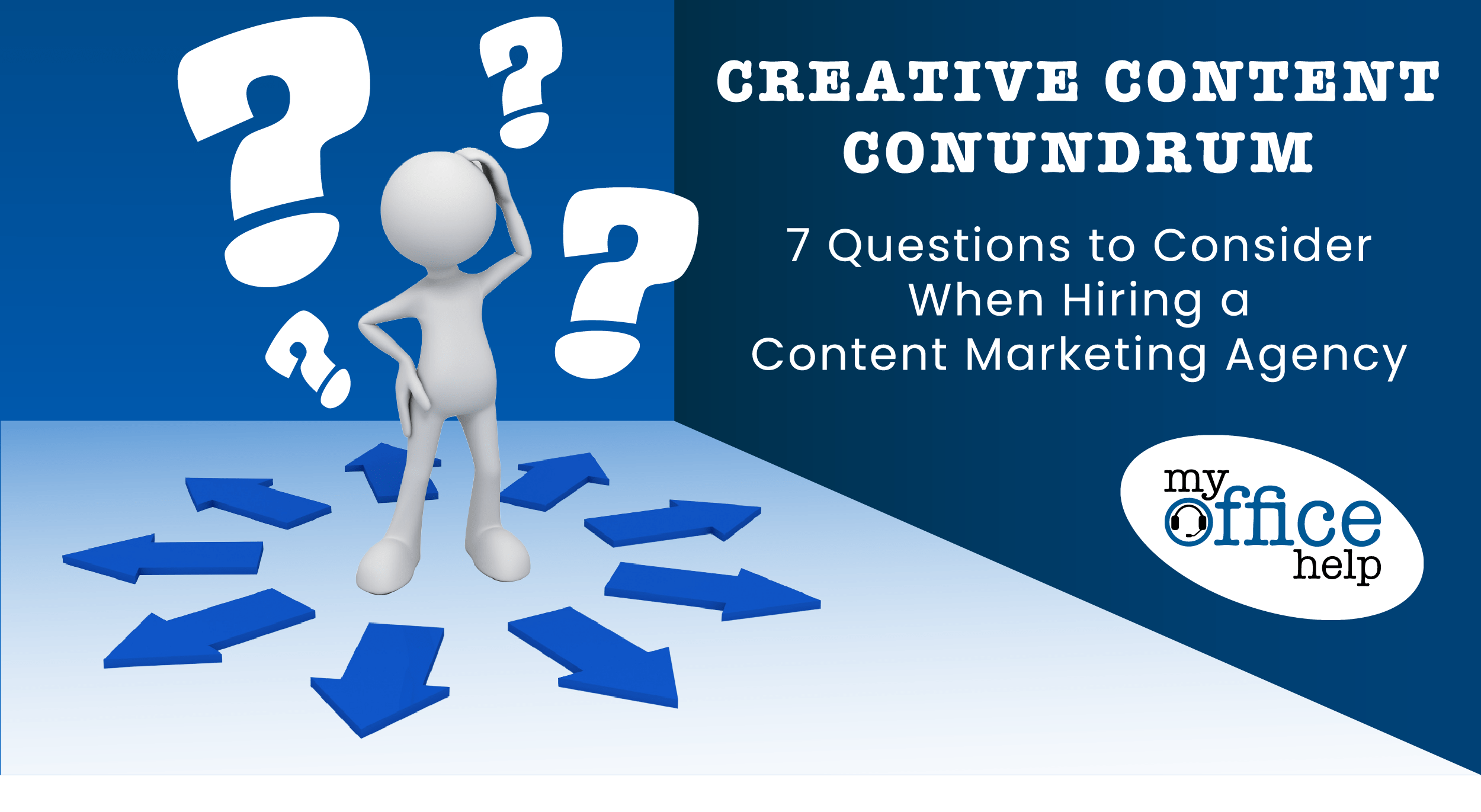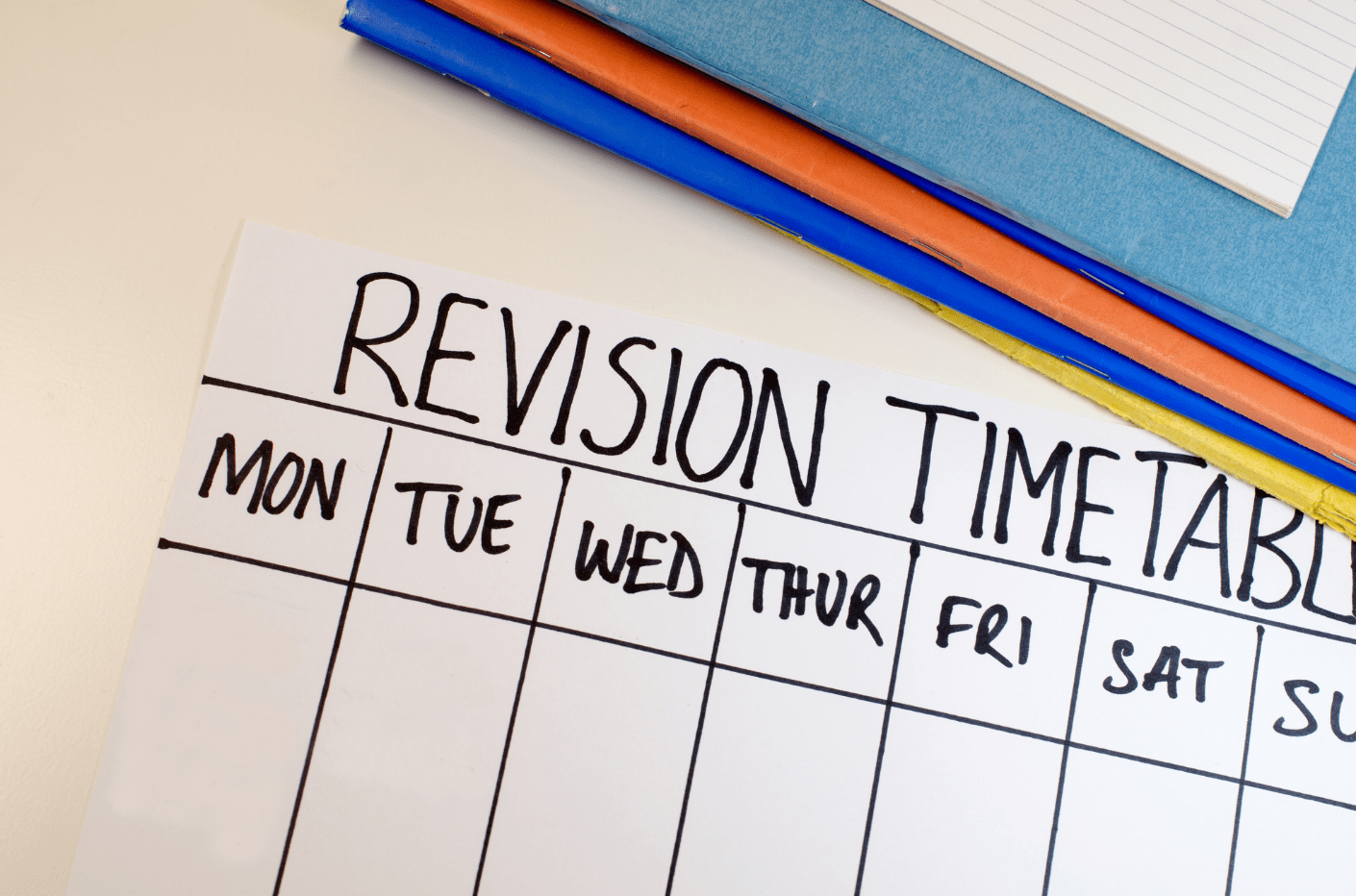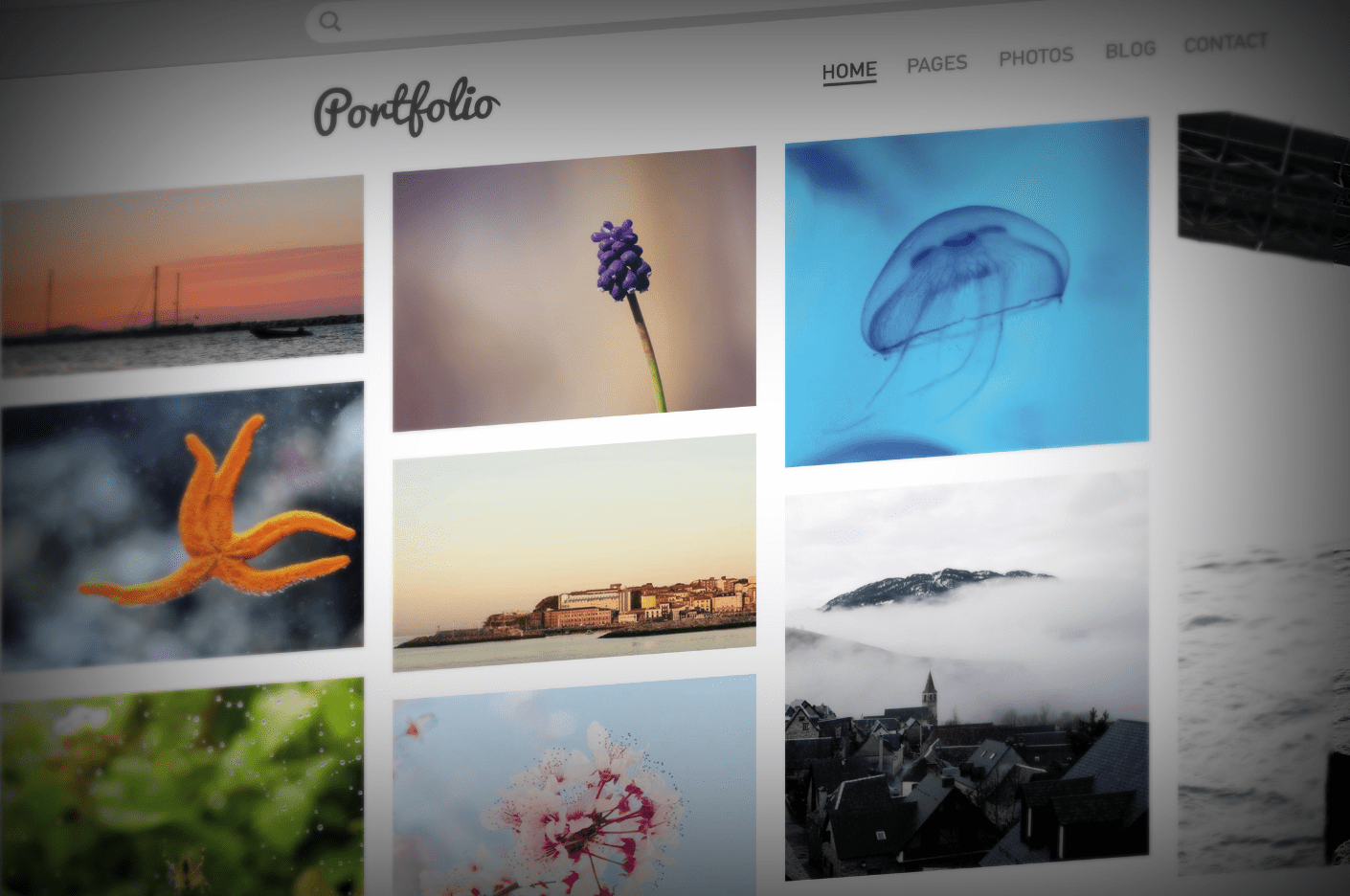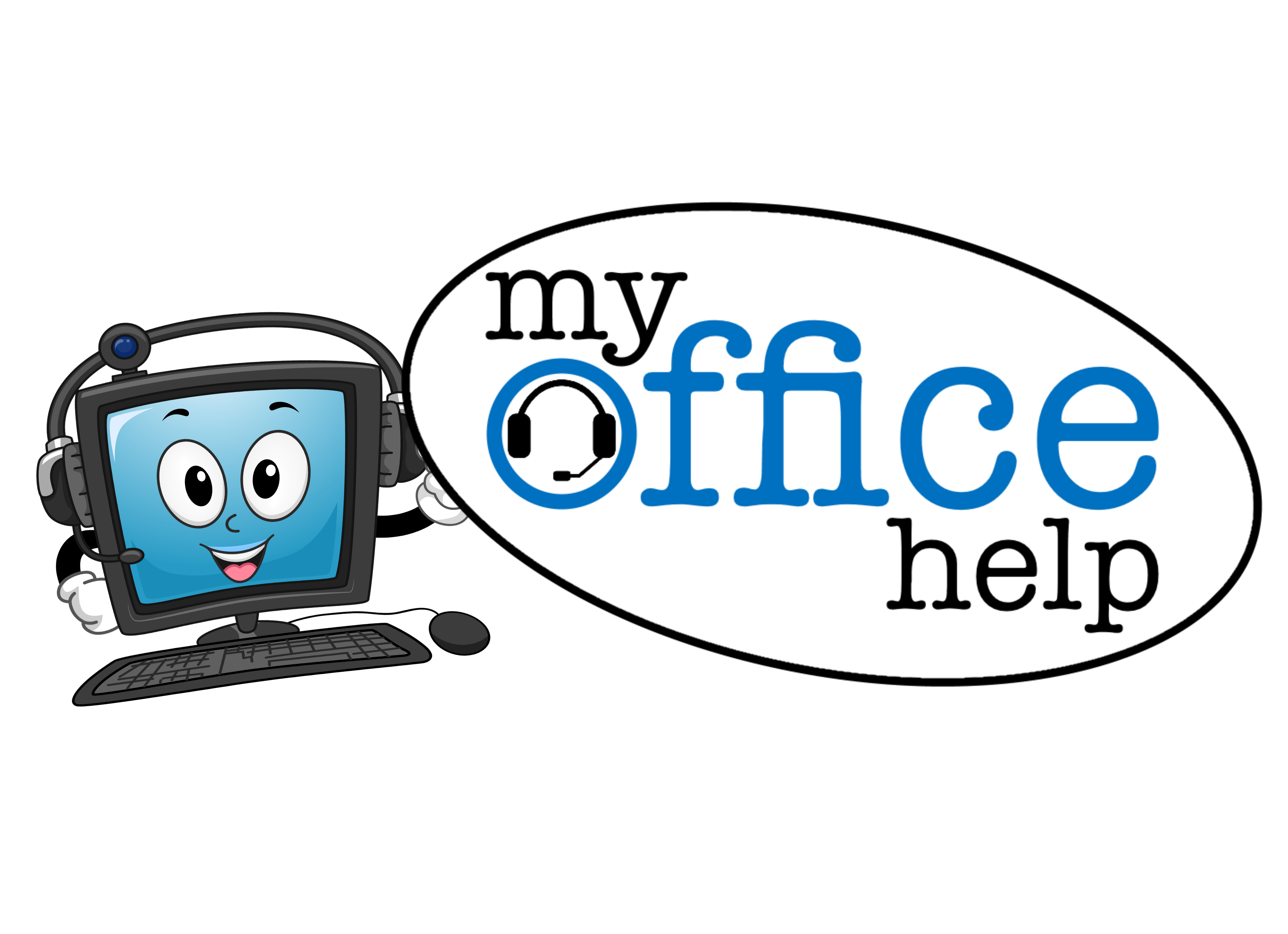
Creative Content Conundrum
7 Questions to Consider When Hiring a Content Marketing Agency
Good creative content is the cornerstone of any successful business. It encompasses your marketing body and covers an extensive range from website design to graphic design, copywriting, blog posting, social media advertising, and videos, to name a few. Without it, you won’t have any credibility or authority with prospective customers. However, as many know, generating that content can be difficult for the average business owner. Maybe you are too busy or possibly lack the skillset to create content for yourself.
With this in mind, your next step is to hire a content marketing agency to generate the content for you. But how do you choose one? How do you know that they’ll produce good work that will achieve the results you want? These questions and more are critical to ask before committing to a contract with any design professional or company. It can seem overwhelming, but you don’t want to be stuck working with someone who has little skill and is just trying to make a quick buck off you. In this article, our marketing and content creation experts will arm you with the tools to help you find the best fit for your company.
1. Who Owns It?

It’s essential to establish this before any money changes hands. Just because an agency is creating a logo or website for you doesn’t mean that you have unlimited rights to it. You will want to get a creative content contract that releases the intellectual rights to you and your company. Doing so will ensure that you have total control over everything with your name and logo on it. This is especially important because if you don’t get a creative content release, many companies will demand their content back if you choose to leave. In turn, you’ll be left spending a large amount of money on rebuilding your brand.
2. Is It A Package Or A One-off?
Many agencies allow for both package or piecemeal designing. Having an outline of how much work you need to have done and how regularly you need it before committing to a project can help you save money. If you only need a few graphics, piecemeal can be the best route. However, if your plan includes the reoccurring need for graphics or videos, or you’re trying to build or overhaul your company’s brand, a package deal with a fixed rate per month may give you the best value.
3. How Many Revisions Are Included, If Any?

The chances are high that your content won’t be perfect on the first draft. That is to be expected, and multiple revisions are routine, especially as the agency gets to know your companies needs. What isn’t always expected is the enormous bill you can rack up from agencies charging for each revision. Make sure to ask them upfront how many revisions you will get for your designs. The amount of revisions is somewhat dependent on the type of content and the project’s size. Still, on average, any reputable individual or company will include at least two to three revisions in their project price. If they don’t include any, consider this a red flag. They are probably more concerned with your money than ensuring the success of your content.
4. What Is The Turn Around Time?

Many reputable content creators will give a standard turn around time between project start and proof and each subsequent revision. Or, at the very least, they can give you a ballpark on when you can see your first proof. If the agency beats around the bush or tries to avoid the question, run away quickly. There’s a high chance that they lack organization, which means you could be waiting for your content for a very long time.
5. Do You Have A Portfolio I Can View?
One of the quickest and easiest ways to judge the quality of the content creators’ work is to see their portfolio. What they put into their portfolio can also tell you a lot about their work as a whole. Do they have a diverse portfolio, or do they seem to specialize in just one content type? The latter can be sufficient, but for example, you don’t want to work with a company that just creates social media posts if you also need web pages. Splitting your content between multiple companies is a sure way to create discord in your brand.

Another concern to keep in mind is the quantity of work in their portfolio. Are there many examples of their work included or just a couple? Unless the agency in question is relatively new, we recommend avoiding agencies with very few examples in their portfolio. Especially if they also seem to have little web or social media presence. If they don’t think that the bulk of their work is good enough to show to potential clients, it probably isn’t worth your money.
6. Who Will Be My Point Of Contact?
Good communication is critical when working with any agency. Great agencies will first and foremost respond promptly to all questions and concerns. They won’t leave you hanging for days on end. They will also check in with you to ask for feedback or talk through any issues they come across. Your first meeting with any agency will be very telling. Take note of whether they’re actually listening and if they’re engaged in answering your questions, instead of just telling you what you want to hear.

To avoid getting bounced around or sending questions to the wrong person, make sure you know who will be handling your content. At the same time, make sure that you have one person at your own company who will be the contact on your end. This will cut down on the unnecessary back and forth and ensure that your company’s vision is communicated with one voice. We also recommend that you ask to speak with your point of contact before any work is done.
7. Have You Worked With Clients In Our Industry?
While this question isn’t quite as important as the others, it’s a good one to keep in mind. Each industry has nuanced differences in how content should be approached. It’s always best if the agency has a history with your industry, but it’s not necessarily a deal-breaker. It does mean that you will have to be heavily communicative with the agency. You will also have to make sure that they are doing their due diligence in learning your industry’s ins and outs.
On your initial contact with the agency, help them out by giving them as much pertinent information as you can regarding your industry and your business. In your next meeting, ask them questions about what you sent to make sure they read it. If they didn’t, don’t work with them. If the agency is not going to give the minimum effort to understand your field, they’re not going to go the extra mile in making sure their content is appropriate.
Once you have found an agency that you feel is a good fit for your company, remember to be open to suggestions from them. This goes both ways, however. Don’t be afraid to give them feedback (Through one point of contact!) if you feel like they are missing the mark. Continuing to practice good communication will be vital in ensuring success for both you and your agency.
If you’re currently looking for the right agency for you, we’d love for you to consider us. Give our friendly marketing team a call at 618.681.4030, or book online using the handy button above.
Remember, do what you do best, let us do the rest.
Related Posts
Service with Impact: How Giving Back Grows Your Business In today’s business landscape, success isn’t solely defined by revenue. Companies that prioritize giving back not only contribute to a stronger [...]
Turn One-Time Customers into Lifelong Clients Running a successful contracting business isn’t just about landing jobs—it’s about creating relationships that lead to consistent work a steady income and turn one-time [...]
Unlock Your Freedom: How My Office Manager (MOM) Transforms Contractor-Client Communication In the fast-paced world of contracting, time is your most valuable asset. Every minute you spend managing client communication, [...]



